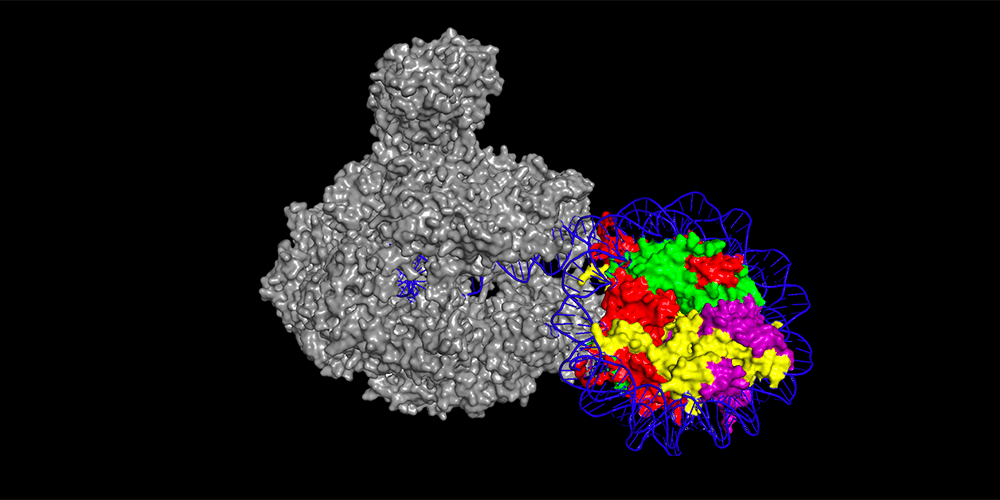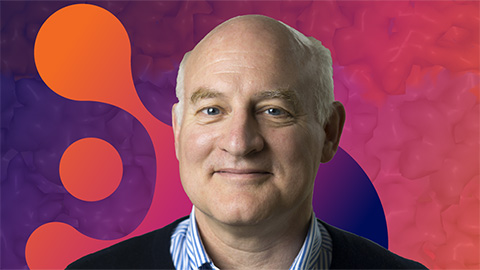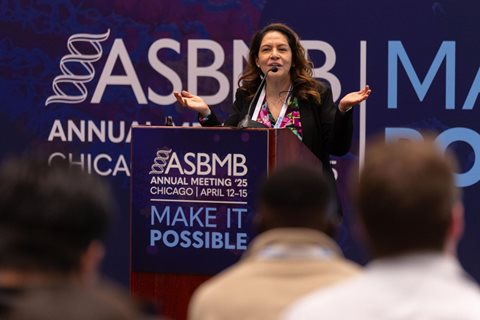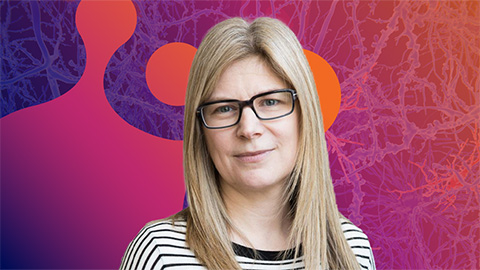Calendar of events, awards and opportunities
Every week, we update this list with new meetings, awards, scholarships and events to help you advance your career. If you’d like us to feature something that you’re offering to the bioscience community, email us with the subject line “For calendar.” ASBMB members’ offerings take priority, and we do not promote products/services. Learn how to advertise in ASBMB Today.

July 14: Oral abstracts due for transcriptional regulation meeting
This in-person meeting will be held Sept. 29 through Oct. 2 in Snowbird, Utah. Sessions will cover recent advances and new technologies in RNA polymerase II regulation, including the contributions of non-coding RNAs, enhancers and promoters, chromatin structure and post-translational modifications, molecular condensates, and other factors that regulate gene expression. Patrick Cramer of the Max Planck Institute will present the keynote address on the structure and function of transcription regulatory complexes. The deadline for oral presentation abstracts is July 14. The deadline for poster presentation abstracts is Aug. 18. Learn more.
NIH talks in July
The National Institutes of Health has a jam-packed calendar of virtual talks and other events. Here are some that are either in or pretty close to our lane.
July 15: Lipid nanoparticles for mRNA therapeutics, cancer immunotherapy and cell therapy — Yizhou Dong, The Ohio State University
July 18: Proteins that interpret genomic signals to stabilize cell identity — Adrian Bird, Wellcome Centre for Cell Biology, University of Edinburgh
July 25: Chromatin regulation and genome maintenance by mammalian sirtuins in aging and disease — Katrin Chua, Stanford University School of Medicine
July 29: Towards rational combination therapies: Understanding tumor evolution during therapy response and resistance — Anna Obenauf, Research Institute of Molecular Pathology, Vienna BioCenter
July 15: Deadline to apply for Colorado PRIDE–AGOLD program
Head to beautiful Denver, Colorado, for a summer experience as a PRIDE (Programs to Increase Diversity Among Individuals Engaged in Health-Related Research) scholar. PRIDE is an initiative of the National Heart, Lung and Blood Institute that trains junior faculty from underrepresented backgrounds and/or with disabilities to advance their scientific careers and make them more competitive for external research funding. The University of Colorado PRIDE (led by Sonia C. Flores, who also leads the ASBMB Minority Affairs Committee) is one of nine national PRIDE sites. Its focus is on the "impact of ancestry and gender on omics of lung and cardiovascular diseases" (which is why it's called PRIDE–AGOLD). The program consists of two consecutive summer institutes (two and one week, respectively) that offer comprehensive formal instruction on multi-omics, data sciences and bioinformatics, with an emphasis on interpretations based on ancestry and/or gender; career development and grant-writing tools; pairing with expert mentors; and pilot funds to develop a small research project. Learn more.

July 20: ASBMB book club on gender equity
The ASBMB Women in Biochemistry and Molecular Biology Committee has a summer book club focused on gender equity for ASBMB members. The next meeting will be on July 20 and will cover “The No Club: Putting a Stop to Women’s Dead-End Work” by Linda Babcock, Brenda Peyser, Lise Vesterlund and Laurie Weingart. Register.
July 28: Virtual presentations on COVID-19 and women
The National Institutes of Health Office of Research on Women's Health has a free quarterly lecture series titled "Diverse Voices: Intersectionality and the Health of Women." The July 28 event will include presentations from Heather Shattuck-Heidorn of the University of Southern Maine and Stephaun Wallace of the Fred Hutchinson Cancer Research Center. Register.

Aug. 2: Abstracts due for epigenetics and genome stability meeting
Most meetings on epigenetics and chromatin focus on transcription, while most meetings on genome integrity include little attention to epigenetics and chromatin. This conference in Seattle will bridge this gap to link researchers who are interested in epigenetic regulations and chromatin with those who are interested in genome integrity. The oral and poster abstract deadline and early registration deadline is Aug. 2. The regular registration deadline is Aug. 29. Learn more.

Aug. 9: Two-part webinar featuring ASBMB award winners
Starting at noon on Aug. 9, we'll have talks by two 2022 ASBMB award winners, followed by Q&A sessions. Come for one or both!
12 p.m. Eastern: Snapshots of lipid synthesis and fat storage | Michael Airola, Stony Brook University
1:30 p.m. Eastern: Chromatin-based modulations underlying gene regulation and pathogenesis | Greg Wang, University of North Carolina School of Medicine

Aug. 12: Virtual registration deadline for mass spec meeting
This five-day conference will be held Aug. 14–18 in person in Cambridge, Massachusetts, and online. It will be an international forum for discussion of the remarkable advances in cell and human protein biology revealed by ever-more-innovative and powerful mass spectrometric technologies. The conference will juxtapose sessions about methodological advances with sessions about the roles those advances play in solving problems and seizing opportunities to understand the composition, dynamics and function of cellular machinery in numerous biological contexts. In addition to celebrating these successes, the organizers also intend to articulate urgent, unmet needs and unsolved problems that will drive the field in the future. The registration deadline was July 1, but you have until Aug. 12 to register to participate virtually. Learn more.

Aug. 15: Workshop and interest group proposals due for #DiscoverBMB
For Discover BMB, the ASBMB's annual meeting in March in Seattle, we're seeking two types of proposals:
- Workshops: These are interactive 60- to 90-minute events focused on careeers, skill building, science outreach and communication, and diversity, equity, access and inclusion. (This article explains what sorts of proposals we're seeking.) Submit a proposal.
- Interest groups: The goal of the interest group sessions is to build communities. (We wrote about how this program got started and how it has worked in the past in this article.) At #DiscoverBMB, interest groups will be scheduled on the first day of the meeting, March 25. Submit an interest group proposal.
Sept. 28: Deadline for new HHMI Freeman Hrabowski Scholars Program
In May, the Howard Hughes Medical Institute launched a roughly $1.5 billion program to "help build a scientific workforce that more fully reflects our increasingly diverse country." The Freeman Hrabowski Scholars Program will fund 30 scholars every other year, and each appointment can last up to 10 years. That represents up to $8.6 million in total support per scholar. HHMI is accepting applications from researchers "who are strongly committed to advancing diversity, equity, and inclusion in science." Learn more.

Nov. 2: ASBMB Virtual Career Expo
Save the date for the ASBMB Career Expo. This virtual event aims to highlight the diversity of career choices available to modern biomedical researchers. No matter your career stage, this expo will provide a plethora of career options for you to explore while simultaneously connecting you with knowledgeable professionals in these careers. Each 60-minute session will focus on a different career path and will feature breakout rooms with professionals in those paths. Attendees can choose to meet in a small group with a single professional for the entire session or move freely between breakout rooms to sample advice from multiple professionals. Sessions will feature the following five sectors: industry, government, science communication, science policy and other. The expo will be held from 11 a.m. to 5 p.m. Eastern on Nov. 2. Stay tuned for a link to register!

Call for virtual scientific event proposals
The ASBMB provides members with a virtual platform to share scientific research and accomplishments and to discuss emerging topics and technologies with the BMB community.
The ASBMB will manage the technical aspects, market the event to tens of thousands of contacts and present the digital event live to a remote audience. Additional tools such as polling, Q&A, breakout rooms and post event Twitter chats may be used to facilitate maximum engagement.
Seminars are typically one to two hours long. A workshop or conference might be longer and even span several days.
Prospective organizers may submit proposals at any time. Decisions are usually made within four to six weeks.

Take over the JLR Twitter account
If you are a graduate student, postdoc or early-career investigator interested in hosting a #LipidTakeover, fill out this application. You can spend a day tweeting from the Journal of Lipid Research's account (@JLipidRes) about your favorite lipids and your work.
IUBMB relocation support for displaced trainees
The International Union of Biochemistry and Molecular Biology is offering $2,000 to graduate students and postdocs displaced from their labs as a result of natural disaster, war or "other events beyond their control that interrupt their training." The money is for travel and settling in. Learn more and spread the word to those who could use assistance.
Enjoy reading ASBMB Today?
Become a member to receive the print edition four times a year and the digital edition monthly.
Learn moreFeatured jobs
from the ASBMB career center
Get the latest from ASBMB Today
Enter your email address, and we’ll send you a weekly email with recent articles, interviews and more.
Latest in Careers
Careers highlights or most popular articles

Exploring the link between lipids and longevity
Meng Wang will present her work on metabolism and aging at the ASBMB Annual Meeting, March 7-10, just outside of Washington, D.C.

Upcoming opportunities
Calling all biochemistry and molecular biology educators! Share your teaching experiences and insights in ASBMB Today’s essay series. Submit your essay or pitch by Jan. 15, 2026.

Defining a ‘crucial gatekeeper’ of lipid metabolism
George Carman receives the Herbert Tabor Research Award at the ASBMB Annual Meeting, March 7–10, just outside of Washington, D.C.

Building the blueprint to block HIV
Wesley Sundquist will present his work on the HIV capsid and revolutionary drug, Lenacapavir, at the ASBMB Annual Meeting, March 7–10, in Maryland.

Upcoming opportunities
Present your research alongside other outstanding scientists. The #ASBMB26 late-breaking abstract deadline is Jan. 15.

Designing life’s building blocks with AI
Tanja Kortemme, a professor at the University of California, San Francisco, will discuss her research using computational biology to engineer proteins at the 2026 ASBMB Annual Meeting.
